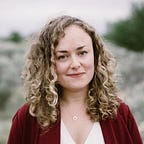How Obamacare helped me get well
In late September 2010, I went to bed with glowing skin and sculpted calves from running outside every morning. I fell asleep counting my to-dos for tomorrow. I added one to the long list: withdraw from sixth course. A full course load was only four.
I went to bed with my finances arranged for the new semester — a robust combination of financial aid, merit scholarships, loans, and work. I closed my eyes and could still see my multicolored Google Calendar, with long days and overlapping events.
I woke with my neck bulging, as if a tight collar had grown around it. My bed had become a magnet, pulling me down with remarkable force. Over the next few days, I woke in the infirmary, and then back in my bed. I woke to visitors and phone calls and “feel better soon.”
I did not feel better soon. I did not feel better after three weeks or three months. And while I slept, my life unraveled.
I had to take a leave from graduate school, because I couldn’t think or talk much or leave the house on my own. What began as mono became an endless hunt for something else. My packed calendar was wiped clean and replaced with doctor visits. My exam schedule was replaced with tests of another kind.
I lost my health insurance, because I wasn’t in school anymore. I also lost my source of income, because I couldn’t work or take out educational loans. I couldn’t take out any other loans either, because I didn’t have any assets. I used what was left in my bank account to survive the rest of 2010.
In January, the first chapter of Obamacare went into effect. I was 23, and one of my parents had a full-time union job then, which came with health insurance. Because of Obamacare, I was able to join the plan, and I got the care I needed while I was sick. After six more months it was clear that it had been mono after all, plus hepatitis EBV, and eventually, depression.
A year after I first got sick, I was finally well enough to go back to school. After I graduated, with two degrees from Harvard, it took me more than a year to find full-time work with health insurance. Luckily, I was married soon after graduation and joined my husband’s student health plan. Later I found a job with benefits, and he joined mine.
All this is to say that, even with immense privilege — a graduate degree, a heterosexual marriage, youth, a working parent — it is terrifying to be sick in America. The fear of losing health insurance, or actually losing it, or not having it to begin with, makes it even harder to get better.
For me, this story ends well. For 22 million Americans, it won’t, if their newly gained health care access and marriage rights are challenged over the next four years. We need to build on the progress we’ve made over the last eight years, not tear it down.
